By Allyn Vannoy
After going on active service in May 1943, Robert W. Creamer was sent to take basic training at Fort Eustis, Virginia. When he received high scores on an Army intelligence test, he was assigned to the Army Specialized Training Program (ASTP, referred to by some as “All Safe Till Peace”) and sent to study engineering at the College of the City of New York (now CUNY) in Manhattan.
In March 1944, the Army needed foot soldiers and closed the ASTP program, assigned Creamer to the 75th Infantry Division, and sent him to Louisiana. The 75th was shipped to Camp Breckinridge, Kentucky, in September. The Army in Europe was in need of replacements, so troops were taken from the 75th and shipped to England in the autumn of 1944.
At Southampton, Creamer boarded the transport SS Leopoldville, crossed the Channel, and arrived off Omaha Beach in France. He said he and his shipmates waded through a foot or so of water. Once they were ashore and could look up again at the high cliffs, they marveled at how other Americans had come ashore there just a few months earlier with people firing at them. No one could fathom how those in the first wave at Omaha Beach survived, let alone how they climbed the cliffs and moved inland.
Creamer and the other replacements were trucked south to Le Mans, then boarded railroad boxcars that took them across France to Liege, Belgium, and up to Aachen, Germany, in early November. There they were assigned to the 104th “Timberwolf” Infantry Division in Munster-Stolbach—a division that had recently seen plenty of fighting. Creamer was a replacement in the weapons platoon of Love (L) Company, 415th Infantry Regiment. This is his story.
In combat I carried the bipod for a .30-caliber machine gun, a .45-caliber pistol, as well as a carbine. I had an assistant gunner and ammunition bearers, who carried boxes of ammo.
From Munster-Stolbach, moving on foot with long lines of fellow GIs through busy roads to Eschweiler [approximately 10 miles east of the city of Aachen], we passed lots of bombed-out factories and dead German soldiers, dead horses, and a wrecked German tank with its enormously long 88mm gun. [This would have been the middle of November.]
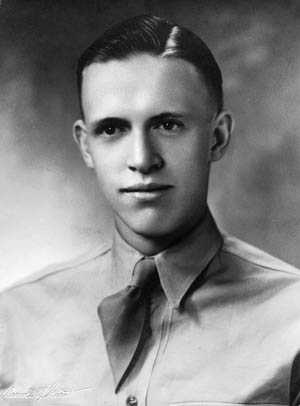
During my travels I don’t recall apprehension, or having fear or worry before I reached combat. This was an adventure, something extraordinarily new. Perhaps we were numbed, or maybe the complexities and novelty of the travel kept thoughts of fear from rising to the surface.
Not long before we went up to the line, a big bunch of us replacements were taken to a hillside in Belgium in a small, natural amphitheater to watch weapons experts fire and talk about the weapons we were going to face. I recall the startling contrast between American machine guns and the infamous German machine gun, a light, extremely rapid machine gun. The German gun fired off rounds so fast it sounded like someone tearing a sheet of sandpaper. You couldn’t believe a gun could fire that fast.
Guys looked at each other and made jokes: “That’s it, I quit,” “Hey, how do I get out of here,” and so on. But it was more amazement than conscious, palpable fear. They also compared American tank guns, 75mm or 105, with the German 88. The American guns sounded like guns, loud and kind of slow. The German 88, which had much greater muzzle velocity, went Pow! Swssshshsh! Something like that. Anyone who ever heard a German 88, the gun on the Tiger tank, remembers the sound. Damn, they sounded powerful. Still, there was no anticipatory dread. That came later, after being in combat.
The first night up on the line I ran into Dave Suckling, whom I had known back in New York in the ASTP. Suckling was from western Pennsylvania. He was a fairly big guy with thick blond hair and very blue eyes sunk deep in a square, pale, high-cheekboned face. He was a decent guy. He was surprised to see me, but I think he was glad to see a familiar face. He’d been on the line just a week or two and told me what it was like to be with the unit.
I remember mostly Dave talking about Sergeant “Red” White, a stocky, quiet, red-haired Irishman from Connecticut, and how White reacted to German fire. Suckling had been the last man in a line of GIs led by White as they went down a road into a town. A burp gun fired at them from a factory. Suckling said he and the guys in front of him dove for the ground, but as he went down on his belly and elbows, trying to flatten into the earth, he saw White at the head of the line dropping to a knee and firing back at the factory with the Tommy gun.
Suckling was in awe of White, his courage, his reaction, his aggression, his rectitude. White later received a slight wound and was sent back to a hospital. A few days later he was back with the unit. The medics wanted to send him to Paris for some R&R, but White said “no” and went back up to the line. There were guys like that.
Irwin Schwartz, a tall, cocky, good-looking Jewish boy from Brooklyn, loved going out on patrols, usually at night in four-man patrols consisting of Sergeant White and three privates—Schwartz, Mike Sussman (also Jewish, from Boston, much more intellectual than Schwartz and much more aware of the danger, but who kept going on patrols because of his palpable hatred of the Nazis), and a guy whose name I can’t remember––an amiable ridge runner from the hill country of western Virginia or North Carolina. They made a great team.
Guys would react to what seemed the strangest things. I remember one day Sussman got a letter from his 12-year-old kid sister back in Boston. He read, parodying and mocking the sentiments in his little sister’s letter: “Take care of yourself. Are you getting enough to eat?” Then, without any warning, emotion overwhelmed him, his voice broke, and he dissolved into tears.
When the gunner I was the assistant to was promoted to sergeant, I became the machine gunner. The man assigned as my assistant gunner was an ass named Hunter, who had been an Army cook. I don’t know why he was sent to the infantry, but it was apparent that the Army was scraping the bottom of the barrel.
In a house in Eschweiler, I had what can best be called an epiphany of the war, what war means. I had been up on the line for a week and had a terrible cold. I had several handkerchiefs with me, olive-drab handkerchiefs that we’d been issued because white ones would be too easily seen by the enemy. I had used them all up; they were all soggy and grimy. I needed something to blow my nose in, and I noticed this big curtain in the front window of the house we were in. It was cotton or linen, soft and smooth and perfect as handkerchief material.
I took my bayonet and cut a huge swath out of the curtain and cut or tore it up into handkerchief-size squares. We had found photo albums and went through them, noticing a young man in some of the photographs in what appeared to be North Africa, where he was apparently serving in Rommel’s Afrika Korps. Seeing the photos of him in the family album back home in Eschweiler made me realize that I and the rest of the dozen or so Americans in that house were intruders, invaders in a family’s home, dirtying it, damaging it and, in my case, tearing down a lovely curtain and cutting it up to blow my nose in.
War breeds atrocity. It was a pretty minor atrocity, but it was nonetheless an atrocity. I didn’t think of the horrors the Nazis committed. I thought of the mother of the house coming back and finding her home a mess and her pretty curtain ripped apart for no apparent reason. The insanity of war got into my head that day.
The standard Army mess kit had a top and a bottom, the bottom with a handle that folded down over the top to hold the two pieces in place, like Boy Scout mess kits. The bottom half could be used as a frying pan, the top part as a dish, or the bottom could function as a dinner plate and the top as a dessert dish—we almost always got dessert when the kitchens came up—fruit, pudding, pie, cake.
Inside the kit was a knife, a fork, and a spoon. There was also a two-piece drinking cup; one piece was the cup with a handle, the other a metal cap or cover that fitted over it. Up on the line you discarded the top part of the mess kit combo and kept only the bottom, discarded the knife and fork and kept only the spoon, kept the cup but discarded the cap, so that you carried only the three essential things—the pan, the cup, and the spoon. That’s all you needed as you took all your food in the pan, had coffee in the cup, and used the spoon as knife, fork, and spoon.
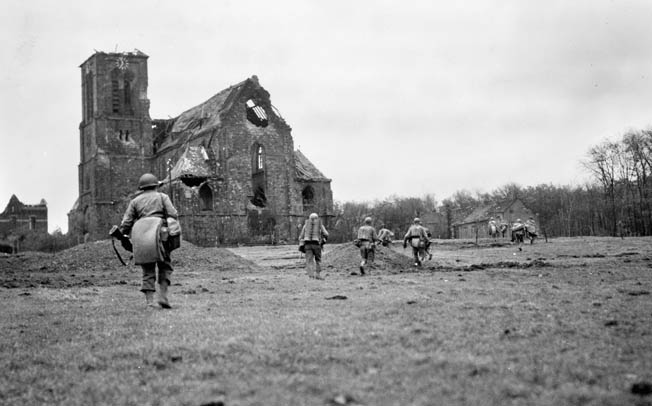
As we slunk along the mess line, I’d hold out my tin plate, and the cooks splatted food into it. Meat? Yeah. Splat. String beans? Yeah. Splat. Mashed potatoes? Yeah. Splat. Gravy? Yeah. Splat. Bread? Yeah. Splat. Pineapple? Yeah. Splat.
“It all went in the same dish, one thing on top of the other, all oozing together. I remember guys laughing about the mixture, but nobody complained about it. It tasted fine. You said thanks to the cooks, and you meant it.
The house we were in [in Weisweiler, some four miles east of Eschweiler] was right next to a river, probably the Inde or one of the streams running into it. The morning after fighting off an attack, I was looking out of a hole in the cellar wall and saw an unexploded German “potato-masher” grenade lying just outside. Even if it had gone off there it probably wouldn’t have done much damage, but its presence, lying so close to the house, made the concept of actual Germans being out there rather real. In general, except for dead ones, you rarely saw the enemy; they were just out there.
Our cellar, close to the river, was flooded with about four or five inches of water on the floor, but within it was an island (a pile) of coal rising out of the water. We lived on that island of coal, sitting on our packs or lying on our blankets. It was dry and fairly comfortable and not as dirty as you’d think. We sat and slept and lay on it. We ate the food we got from the portable kitchens there. We used a distant corner of the cellar on the far side as our impromptu latrine. Hell, we weren’t about to go outside if we didn’t have to.
One day, mail was brought up to the line, and I had a letter from my grandmother, Nana Watts. She wrote wonderful stream-of-consciousness letters, thoughts popping into her head and onto the paper so that you could almost hear her talking. I read the letter, or parts of it, aloud for the amusement of my friends because Nana was reminding me to keep my feet dry, to change my socks every day, to be sure to clean behind my ears, and to wash my hands before eating. And so on. We hadn’t had our clothes off in several days—we slept in them, our hands and faces were dirty and grimy, we were sitting in coal, there was shit in the corner, and we were eating our food as much with our filthy fingers as we were with our spoons. It seemed funny at the time.
In Weisweiler there was a stir one day. A reporter from a New York paper wanted to know if anyone was from New York. Someone yelled, “Hey, you guys are from New York, aren’t you?” I think it was Schwartz and I, and maybe a few others, hurried outside and joined a pack of maybe 12 or 15 guys gathered around the reporter. He was working for the New York Daily News and asked for names and addresses of fellows from the New York area. I know he got mine because it appeared in a story in the paper a few days later, and my father saved the clipping.
We were gabbing with the newspaperman when a staff sergeant suddenly appeared, screaming at us to “Break it up!” He kept yelling, “What the hell is wrong with you guys? Break it up! Get out of here!”
His point, which we suddenly recognized, was that German artillery observers, surveying Weisweiler through scopes or binoculars and seeing a large cluster of American soldiers gathered in the street, would surely call in fire on us. So we scattered and we were barely back in our cellar when there were two or three explosions—incoming German fire.
While in Weisweiler, I was cleaning our machine gun, sitting in the cellar on the pile of coal. One of the things to clean was the machine gun’s bolt and a large flat spring, slightly bowed upward in the middle when it was inserted, with u-shaped indentations at either end that fit into little posts or nubs on the bolt. To put it back, you inserted one of the u-shaped openings around a small post at one end and then bent the spring enough to slide the other end into place. Sometimes you’d slip, and the spring would fly in the air and you’d have to pick it up, clean it off, and start all over.
I was either taking the spring out or putting it back in when it slipped and went b-o-i-n-n-n-g, flew through the air, and landed in the water several feet away. I tried like hell to find it, putting my hand down into that dark filthy water and feeling around without luck. I could not find the damn spring, and the gun was inoperative without it.
I then remembered that an American Sherman tank had been hit and disabled in the middle of the village, a block or so from where we were. The turret gunner on the tank fired a .30-caliber machine gun which had, I was sure, the same kind of bolt. So I went down to where the tank was. I remember a dead GI in the tank. I climbed on the tank, opened the machine gun, exposed the bolt, and carefully pried out the spring.
Someone, an officer or a sergeant, approached and asked me what the hell I was doing. I said I needed the spring. I went back to my cellar and successfully inserted the substitute spring into the bolt so that the gun was operative again. I felt pretty proud of myself.
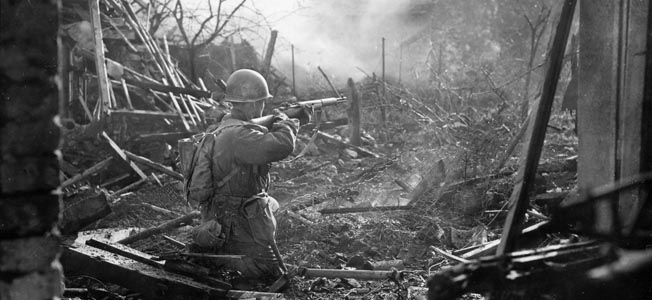
On November 29, the 3rd Battalion, 415th, moved from Weisweiler two miles to Frenz. The next day the battalion moved into Lamersdorf, three miles northeast of Weisweiler, relieving the 2nd Battalion of the 413th Infantry, where it proceeded to mop up isolated pockets of Germans. During the afternoon of December 1, a reinforced platoon of L Company advanced north of Lamersdorf, seizing the large factory at the south end of the town of Inden in an effort to facilitate an eventual night crossing of the Inde River.
One late afternoon guys in the weapons platoon and others in the company were gathered near a barn as an officer or sergeant was putting a squad together to go do something—cover the flank of a platoon of infantry, I guess. We never knew, at least I never knew, what the overall picture was whenever we moved into action. It seemed haphazard and improvised. In combat, an army or a regiment or a battalion or a company seemed more like a bunch of pebbles rolling slowly down a slope, or leaves drifting casually along a street, some going this way, some going that, at different speeds, or sometimes staying in one place. It seems messy, jumbled, hit or miss. Everything gets to where it’s supposed to be, but sloppily, and maybe not exactly to where it’s supposed to go, but more over there to the left, or to the right.
This day, an officer or sergeant was assembling a squad and to it he assigned one of the other machine guns. But the gunner was reluctant. He didn’t want to go out on this action. He didn’t cry, but he did kind of whimper a little. He just didn’t want to go, and it was obvious that, if he did go, he wouldn’t be worth much. I don’t know if I felt sorry for the guy or felt contempt but without thinking I said, “I’ll go.”
We formed the group, maybe 15 or 20 strong, with a couple of guys with mortars and several riflemen, and we crossed the river on a bombed-out bridge and took up positions against the upsweep of a little ridge. I don’t know how long we were there, several hours anyway, a good part of the night. I don’t remember firing my gun, although I know the mortar guys threw rounds out there somewhere.
Several times white phosphorous shells burst overhead, creating a vivid, clear light and raining bits of spent phosphorous on us. They cast a bright light and were usually used to show positions, reveal targets, and the like. There was no sense of fear, though we all felt good when the call came to go back.
On the way back, as we recrossed the bridge we’d used coming up, where much of the roadbed of the bridge had been blown away, there were several cables still crossing the water. We had crossed earlier by walking on a lower cable while holding onto another cable overhead. It didn’t seem hard. Earlier, going out, we got to the broken cement edge of the remaining part of the roadbed, climbed up on it from the cables, and walked the rest of the way off the bridge on the roadway.
Coming back we lowered ourselves from the roadway to the cables, our feet on one, a hand holding the one overhead. I was carrying the machine gun on one shoulder as I had coming across, but as we started back my foot slipped off the cable and I was more or less hanging in air, holding on to the overhead cable with one hand, holding the machine gun on my shoulder with the other, and I did a one-arm pull-up and got my feet back on the cable again and walked on with no trouble and off the bridge.
Whether one of my feet was still on the lower cable when I slipped I can’t recall, but I do remember feeling wonder and astonishment that I, the weak-armed skinny guy who could hardly do three pull-ups in a row, did a one-arm pull-up carrying a machine gun on my shoulder without even thinking about it. Adrenaline. I must have got a big jolt of it when I slipped.
Regarding fear and apprehension, I didn’t feel any at all that night, just the excitement of doing something, of moving. Yet fear existed; it got inside you somewhere.
One day we were waiting to move out. Moving out meant moving out into action. I never knew ahead of time where we were going or what we were expected to do when we moved out. Sometimes it didn’t involve much beyond marching somewhere and taking up positions for a while, but we always knew it could involve action, and we didn’t look forward to it. When you were actually outside and moving, doing something, it wasn’t as bad, but waiting to move out was.
This day it was raining, and there was a wet field to go through. I was uneasy, and I felt relieved when another platoon moved out ahead of us. They were led by a brand-new second lieutenant who had just come up to the company that morning. We marched somewhere and marched back, but all I remember is that we heard later that the other platoon had been fired on and the new lieutenant had been hit, not terribly bad, but bad enough to get him evacuated. He had been in combat maybe two hours.
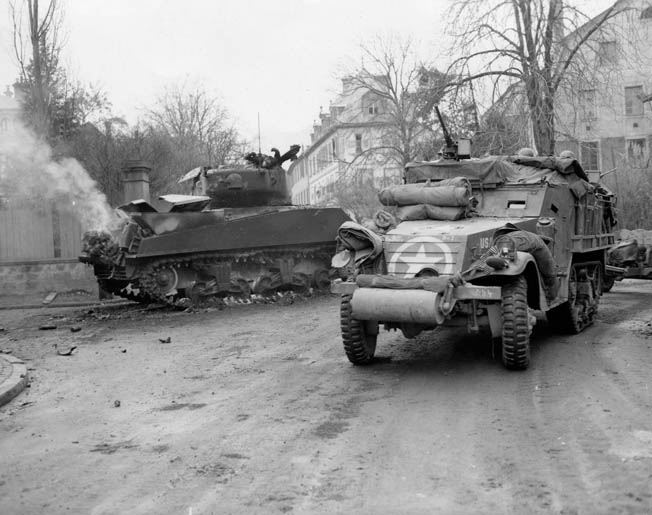
An infantry company had six officers––the company commander, usually a captain; an executive officer, usually a first lieutenant; and four platoon leaders, either first or second lieutenants. But I recall only three officers—Captain [Francis J.] Hallahan, the company commander; 1st Lt. [Thomas] Danowski, executive officer; and Lieutenant Thompson, the weapons platoon leader. I never knew the officers who led the other three platoons; they kept getting hurt and replaced.
Captain Hallahan was a lean, dark-haired Irishman from Brooklyn, a serious, intelligent man, quiet but with a sense of humor.
One night when we were under attack and our phone lines were out, and with no walkie-talkie radios, I was sent to tell Lieutenant Thompson about the presence of a German tank. I learned later that seven or eight tanks had moved into the town and that German infantry had come up with the tanks. When I got to Thompson’s CP his phone was out too, so he sent me back to the house where Captain Hallahan was to tell him.
I gave him the message and he said, “Okay. Stay here. I may need you [as a messenger].” So I hung around there the rest of the night as people came and went. I think they forgot I was there, but I didn’t mind.
While with Hallahan, an American tank lieutenant [from C Company, 750th Tank Battalion] came up the stairs to report to him. Hallahan told him there were six or seven, maybe eight or nine, German tanks on the edge of town and said, “Could you bring your tanks around and fire a couple of rounds at them?”
I can still see the tank lieutenant. He was a beefy guy with a red face, and he obviously wasn’t keen on the idea. He was shifting from foot to foot as he said, “Well, geez, Captain. I mean.… I got three tanks and they got seven or eight. Even one on one, they outgun us.” There was another little exchange, with the lieutenant still resisting, and then Hallahan, kind of disgusted, said, “Do you think you could just race your engines a little?”
According to Private Charles Davis, L Company, the tank officer left to talk over the situation with his fellow officers and promised to radio back, but he was not heard from again.
I don’t know what the American tanks did, but the German attack was stopped by our mortars. The mortars were set up behind the houses a block or two back from the edge of town and were fired at an extreme angle, almost straight up in the air, so that they dropped down on the tanks. Two or three were hit, and another was disabled when a gung-ho GI [possibly Sergeant George E. Burns, F Company, 415th Infantry] with a bazooka came out of a cellar and fired point-blank at the tank.
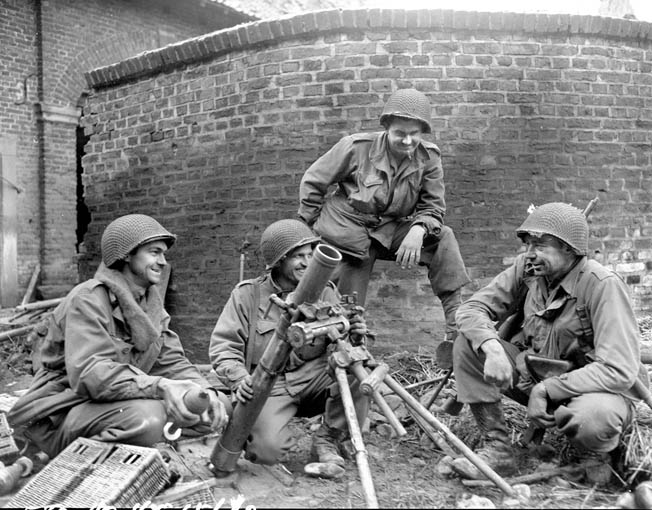
The German infantrymen also took a beating, and finally the remaining tanks withdrew and the infantry retreated. In the early light one tank was moving slowly, having trouble. Then there was a puff of smoke, and the crew bailed out and took off in a hurry on foot. I remembered we cheered.
We infantrymen didn’t like American tanks, as they drew fire.
During the night of the tank attack, I learned of the death of Martin Berman, a guy I knew slightly as I happened to be sitting on the troop train when we were traveling to New York to board our troopship. I heard of his death while eavesdropping on a phone call in Lieutenant Thompson’s CP. As I listened in on the phone conversation, I heard an officer asking a non-com for a report.
“Any casualties?”
“One. Pfc. Martin Berman.”
“What happened?”
“He was hit by a shell in his foxhole.”
“Is he dead?”
“Jesus Christ, all we found was his foot.”
It’s odd being in the neighborhood of wounds and weapons and death. We were moving up once, across a railroad track and into a factory. Some of us were herded into a long, wide passageway in the factory, with windows high on one side. There was some kind of flat bench, and on it a GI lay on his back perfectly still with his eyes closed, not moving at all.
Someone whispered, “Is he sleeping?”
What he meant, which was perfectly clear to us, was not, “Is he awake or is he sleeping?” but, “Is he dead or is he sleeping?” In this case he was sleeping, or trying to.
Lieutenant Danowski, the company executive officer, was a well-built, good-looking guy, noted for his brashness. He and Captain Hallahan were great friends, but opposites—one quiet and appraising, the other loud and impulsive. At Lamersdorf was a factory with a high chimney. Danowski was convinced that there was a German spotter on or in the chimney.
A bunch of us were inside a building when we heard rifle shots and then mortar rounds coming in just as Danowski and a couple of GIs practically burst through the door to get safe inside. He soon went out again, and when we asked what happened someone said Danowski shot at the chimney and the German spotter got so pissed off he called in mortar rounds in retaliation.
The day after a lot of night action we heard groans and moans from beyond a wall on the other side of a street. Nothing was going on, so another guy and I went over to look and there was a big Kraut lying flat on his back, still wearing his helmet, still buttoned up in the huge overcoat some of them wore. He was conscious but not talking except for the groans. Tough, hard faced, blue eyes. I don’t know how badly he was hurt, but he couldn’t move.
We opened his coat and saw his uniform, and in his pocket he had a picture ID in his dress uniform. The son-of-a-bitch was a storm trooper or SS. A couple of others had joined us by then, including a noncom who said, “Leave him there. Come on, get back inside.” But one guy and I found a wooden door, and four of us got the big bastard on the door––though he didn’t want us to. He kept saying, “Nein, nein.” We carried him back across the street into the building we’d been in. We laid him on the floor, and a medic came to look at him. I don’t know what happened to him after that.
That same day I got to talking to another German prisoner we’d taken. He was about 30. He didn’t speak English, and I didn’t speak German, so we spoke in broken French. He’d been a bank clerk in Cologne. I asked him about Hitler, what it was like living in a country under such a terrible person, asking him how he condoned it.
He shrugged, as though to say, “What could I do?” He said, “I am a prisoner, but you are a prisoner, too. You are a prisoner of the war.”
I remember replying defiantly, “Yes, but you are my prisoner.”
He also said, gleefully, “I will be sent as a prisoner to England and in six months I will speak English.” That seemed to be all that mattered to him.
Upstairs in the house we occupied, that same day we had three or four prisoners, and I was assigned to guard them. They were kids, teenagers, and didn’t seem very threatening. Someone said they were Austrian. They were sitting on the floor against one wall, and I was sitting in a dining room chair across from them holding my .45 pistol on them.
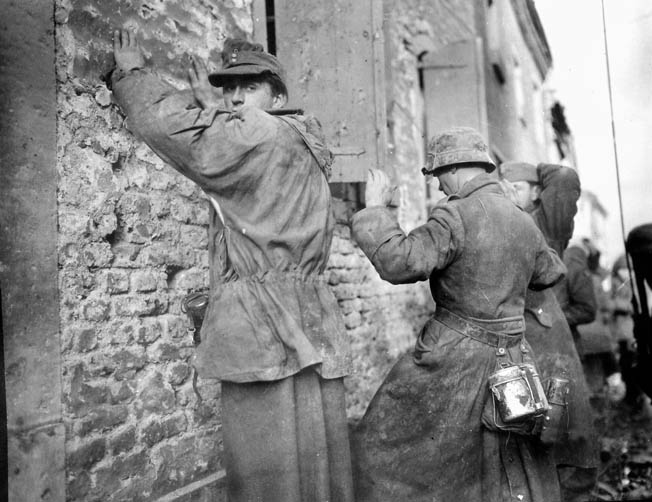
It was late afternoon by then and getting dark. The prisoners were talking quietly among themselves, even laughing and giggling a little like the kids they were, but as it got darker and as I could hardly see them they seemed bigger and older and more dangerous. I wanted them to be sure to be aware that I was still there, still holding a gun on them, so I decided to slide the top of the .45 back and then forward again, making it click so that they’d know I was still there with the gun.
But as I slid the top back, my grip on it slipped. The top jumped forward, banged shut, and the impact fired the round that was in the chamber. The bullet went into the floor close to my feet. Nobody got hurt, but it made a hell of noise, and the young German prisoners shut up like clams.
Lieutenant Danowski came running up from the cellar yelling, “What happened?”
I explained what I had done and said, apologetically, “I could have killed one of them.”
“Too bad you didn’t,” he said, and went back downstairs.
Hunter, my inept assistant gunner, almost killed me one night. We were advancing, and an officer or a noncom told me to set up my gun on a slope. I put the gun in position and then, straddling the muzzle, I adjusted the two short legs of the bipod. We had taken the ammo belt out before we began the march. When we removed the belt from the gun, we always left a single round in the chamber because it let you resume shooting without delay when you reinserted the belt.
So, I was standing there with my feet and shins on either side of the muzzle when Hunter decided to pull the trigger. Wham! It felt like the loudest noise I’d ever heard, and the flash of the gun made it seem as though the whole hillside and the valley below us had been lit up. I fell flat on my belly.
When I lifted my head, Hunter said, “Are you alive?”
“You stupid son of a bitch,” I said.
The officer or noncom appeared, saying, “What happened?”
I told him Hunter had fired the round in the chamber while I was setting up the gun.
“I didn’t know it was loaded,” Hunter said. “I wanted to see what it felt like to pull the trigger.”
I don’t remember anything more about Hunter. God, I disliked him.
Lieutenant Thompson, weapons platoon leader, was distinctly different from both Danowski and Captain Hallahan. He was smaller than Danowski, not as lean as Hallahan, and very cheerful and upbeat, a funny, amusing man. We called Lieutenant Thompson “Tommy” most of the time, not “Lieutenant” or “Sir.” He had an older private or Pfc. that served as his aide, a man probably about 35 or 40, ancient to us young guys. The Pfc. was very fond of Thompson and took good care of him, keeping his gear and official stuff in order and so on. Thompson delighted in him and referred to him as his “batman”—the British Army term for an officer’s personal servant.
One day, Captain Hallahan and a platoon or two he had with him got into difficulty on the other side of a river. Danowski took the rest of the company—the remaining riflemen and the weapons platoon—and led us in a long, roundabout march out of the town and around to one edge of it, where the houses ended next to one of those big fields that seemed to run right up next to each town. A fence or a hedge separated the houses from the field, which sloped down from the road toward the river. Danowski was at the head of the line, and Thompson was at the rear.
As soon as we left the road and began moving along the fence, Danowski had us go down onto our hands and knees so we’d be hidden behind the fence and not spotted by the Germans. So we crawled down that long slope, cradling our rifles in our arms, or, in my case, my machine gun. It sounds hard, and maybe it was. It was a long crawl.
I was about a third of the way down the slope when here came Thompson from the rear of the line, crawling past me. He had a big grin on his face.
I said, “Where are you going?”
He said, “Today’s Sunday. I’m going to ask Danowski if I can go to church.”
He crawled all the way down the hill, past all the crawling guys until he got to Danowski, then he crawled all the way back. As he passed me, I said, “What did he say?” Thompson, still grinning, said, “He said no,” and kept crawling.
One night, I was sitting in a foxhole when German mortar fire began coming in. One technique in firing mortars was bracketing—aiming to the left of the target with the first round, to the right with the second, closer on the left with the third, closer on the right with the fourth—closing in, in other words, to be surer of a hit. Another technique was walking—determining the target was along a certain line from the gun, aiming long with the first round and then “walking” the rounds back on the assumption that eventually they’d land right on or very close to the target.
This night I heard a mortar round come in well beyond me, several hundred yards beyond me. Then a second round came in somewhat closer, then a third round even closer. I thought, “Oh shit! They’re walking it back this way.”
I was certain one would eventually land right on me and assumed I was going to be killed. I wondered what it was going to feel like.
I scrunched down at the bottom of the hole and prayed. Another round came closer still. Then the next one moved at a right angle, away from me, away from the line leading to me. They were simply blanketing the area where they knew a lot of GIs were.
On the night of December 2/3, companies of the 2nd and 3rd Battalions, 415th Infantry, slipped across the Inde River. The next day the battalions assaulted the town of Lucherberg, approximately a mile east of Lamersdorf, beyond the Inde River, then secured and established defensive positions. The American positions were subject to intense attacks by infantry and tanks for several days, as well as repeated artillery and mortar barrages. Despite this, the 415th held onto the town, a key position on the flank of the 104th Division bridgehead.
I called fire in on the Germans once while in Lucherberg. We were assigned to a house on the last street in town at the corner of the road that ran straight from the village through an enormous field on the far side of the village. An artillery observer was in the house setting up in a room upstairs that looked out over the field.
In the distance I saw a line of German soldiers on bicycles starting out along a road. There were several trees lining the road. I called the Germans on the bicycles to the spotter’s attention and asked if he was going to call in rounds on them. He said probably not, that it wasn’t important enough to waste shells on.
But when they got their phone wire connected, he reported the bicycle riders to his battery. “They’re going to fire one round for effect,” he said. A minute or so later we heard the whishing of a shell or two overhead and the sound of the guns in the battery, and way out near the riders we saw the shells explode as the Germans dove off their bicycles. After a couple of minutes they got up and went on their way. Nobody was hurt, as far as we could see.
Irwin Schwartz was in a house across from us on the beginning of that same long road out of town. He was excited and elated because even though he was only a Pfc., he had been put in charge of the squad manning the house. He was as proud as a new parent and showed me through the house, explaining how and where he had placed his men and their weapons.
Later that same day, a German round hit a wall of his house and sent a fragment of stone into Schwartz’s thigh. Two guys carried him out of the house, Schwarz crying and swearing. He was in a lot of pain, but mostly he was angry. He was mad because it was his first time in command and, before he had a chance to really lead, he had been hurt—and not even by shrapnel or a bullet, but by a lousy rock.
In our house we had set up the machine gun on a kitchen table aimed out the window at the backyard. During the night the Germans shelled the town. Then we heard motors, and we could see well enough to see a German tank coming up the road toward us. This huge German tank came slowly rumbling up the road and turned off in our backyard and parked, maybe 100 or 150 feet from the back door. It settled in and swiveled its long 88 around until it was pointed right at us.
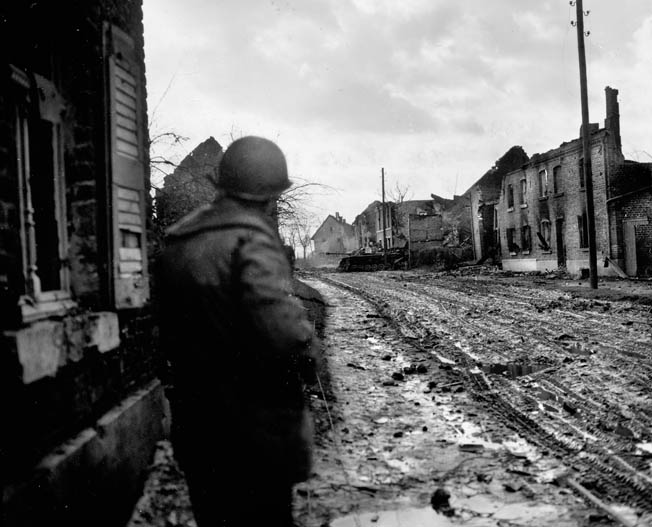
We stared at it, as the 88 pointed at us. Our machine gun was still on the kitchen table, aimed out the window. Corporal Tati (who was in charge of the defenders in the house) whispered, “Don’t fire that gun.”
I said, “Don’t worry.” I was behind the gun, manning it but with no intention of firing it.
He tried the phone to call the weapons platoon command post, but the wire was out. Tati said, “Someone’s got to tell Thompson.” Nobody said anything. Tati looked out the front door, and I thought he was going to go himself but he came back. My impression was that he didn’t want to go outside.
“I’ll go,” I said.
He looked at me as though I were crazy, but he said, “Okay.”
The weapons platoon CP was in a house down and across the street. I stood in the doorway for a second and then went trotting down the street, crossing it and ducking into Thompson’s house. I told Thompson what I knew, and he said we had to tell Hallahan, but his phone was out too, so he sent me.
While many GIs turned a sighting of any German tank into reports of the notorious Tiger, the 68-ton German heavy tank mounting a deadly 88mm main gun, in the case of operations at Lucherberg, the Germans had employed the Wehrmacht’s 506th Heavy Panzer Battalion with its Mark VIB Tiger IIs, or King Tigers.
That Tiger tank scared hell out of me, especially that 88mm cannon looking in the kitchen window, and I wanted very much to get away from it. I remember distinctly feeling the shattering incongruity of sitting at a table in a kitchen aiming a machine gun at a tank in the backyard and thinking, “This is crazy.”
Yet I didn’t feel fear running along the street to Thompson’s or going on to Captain Hallahan’s or waiting there during the attack and counterattack. There was undoubtedly a psychological lift when you were actually in action, doing something, or watching the admirable Hallahan quietly running things. When action stopped and the adrenaline drained and you were facing the wait for whatever you were going to have to face next, that’s when you felt fear, terrible fear.
After I got hurt [a non-combat wound suffered in Lucherberg on December 6] and was being shipped to the rear, I had a terrible nightmare, probably the worst nightmare of my life. It was a short dream, but the fear and dread I felt all but paralyzed me. In my dream we were in the open place under a barn when Captain Hallahan stuck his head in and said, “Get ready. We’re moving out in 10 minutes.”
That simple remark, “Moving out!” filled me with terror. I was rigid with fright as I woke up.
Following the war, Robert W. Creamer (July 14, 1922-July 18, 2012) was a sportswriter in New York. He was one of the first hired to the staff of Sports Illustrated in 1954, served as a senior editor until 1984, also wrote for the New York Times, and authored what is considered the definitive biography of Babe Ruth, Babe: The Legend Comes to Life (1974). He also wrote biographies of Mickey Mantle, Casey Stengel, Ralph Houk, and sportscaster Red Barber.
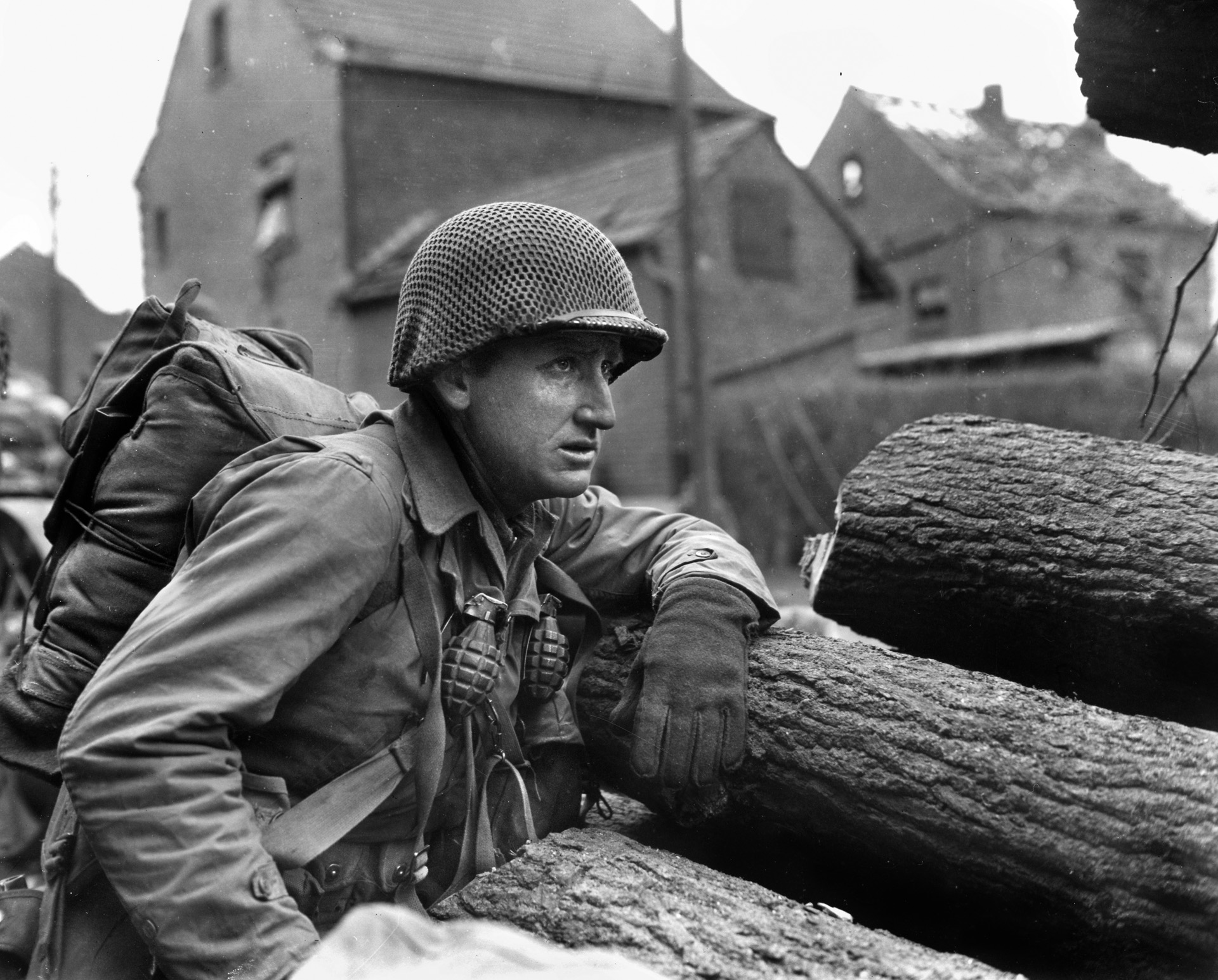
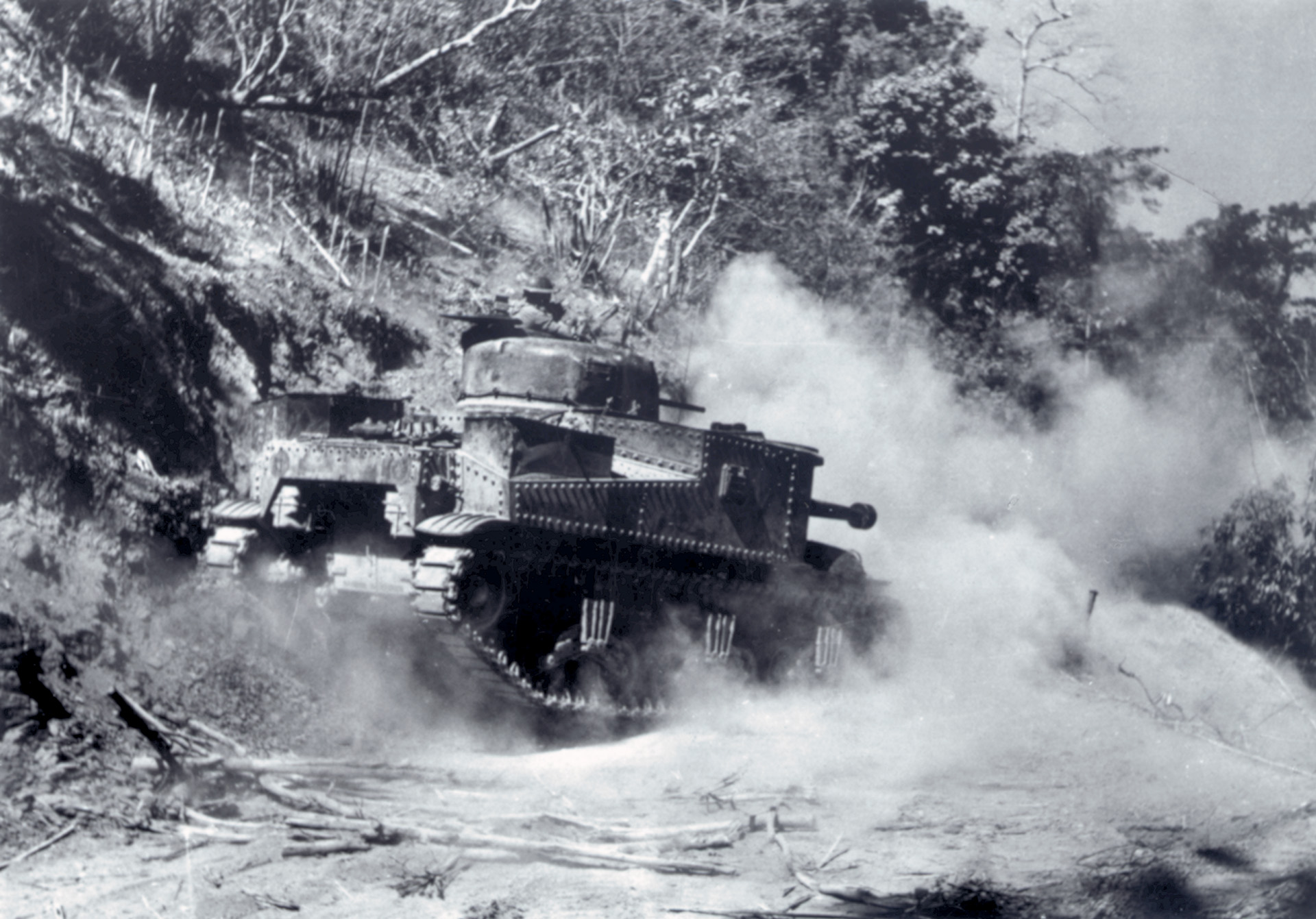
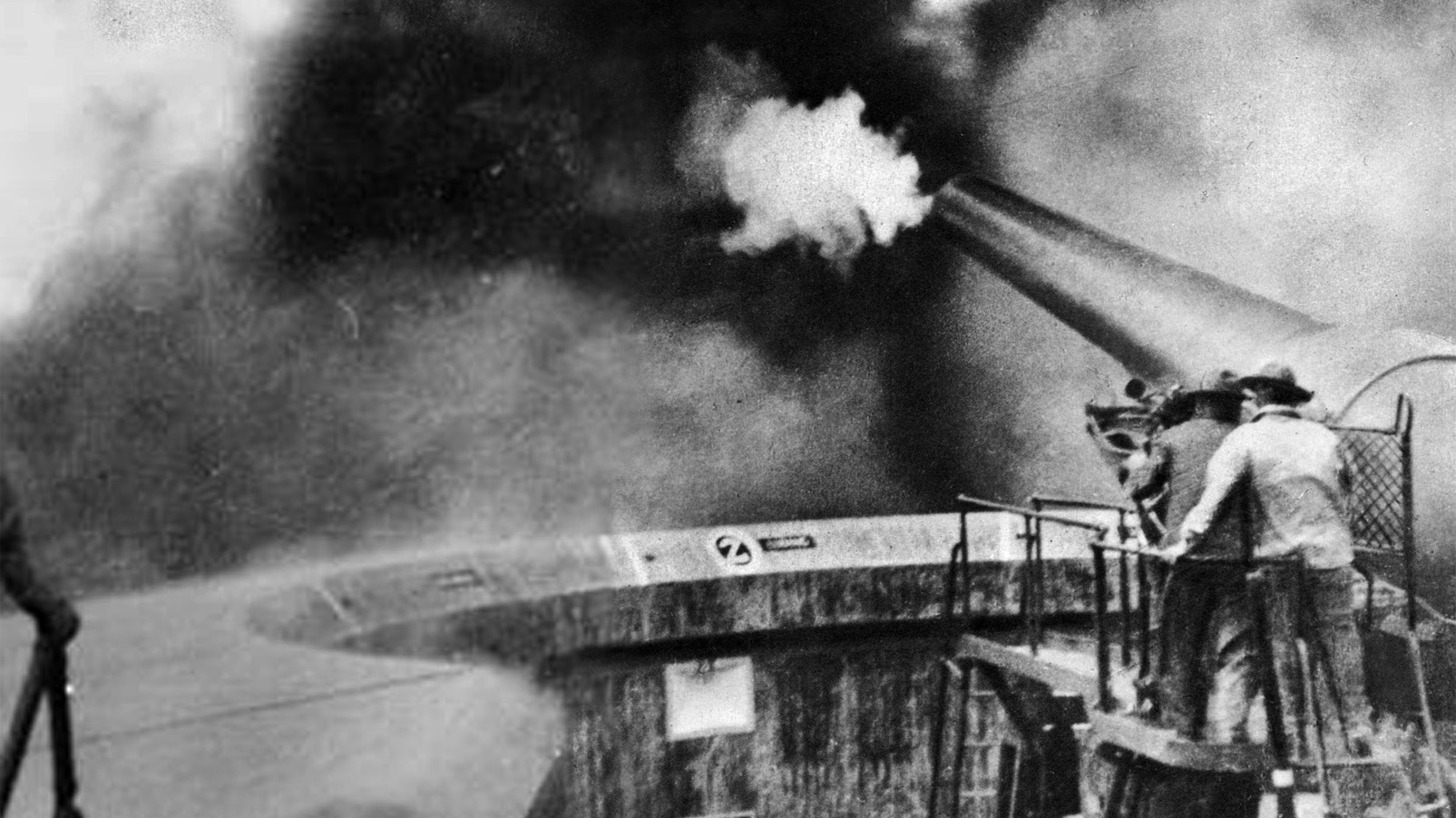
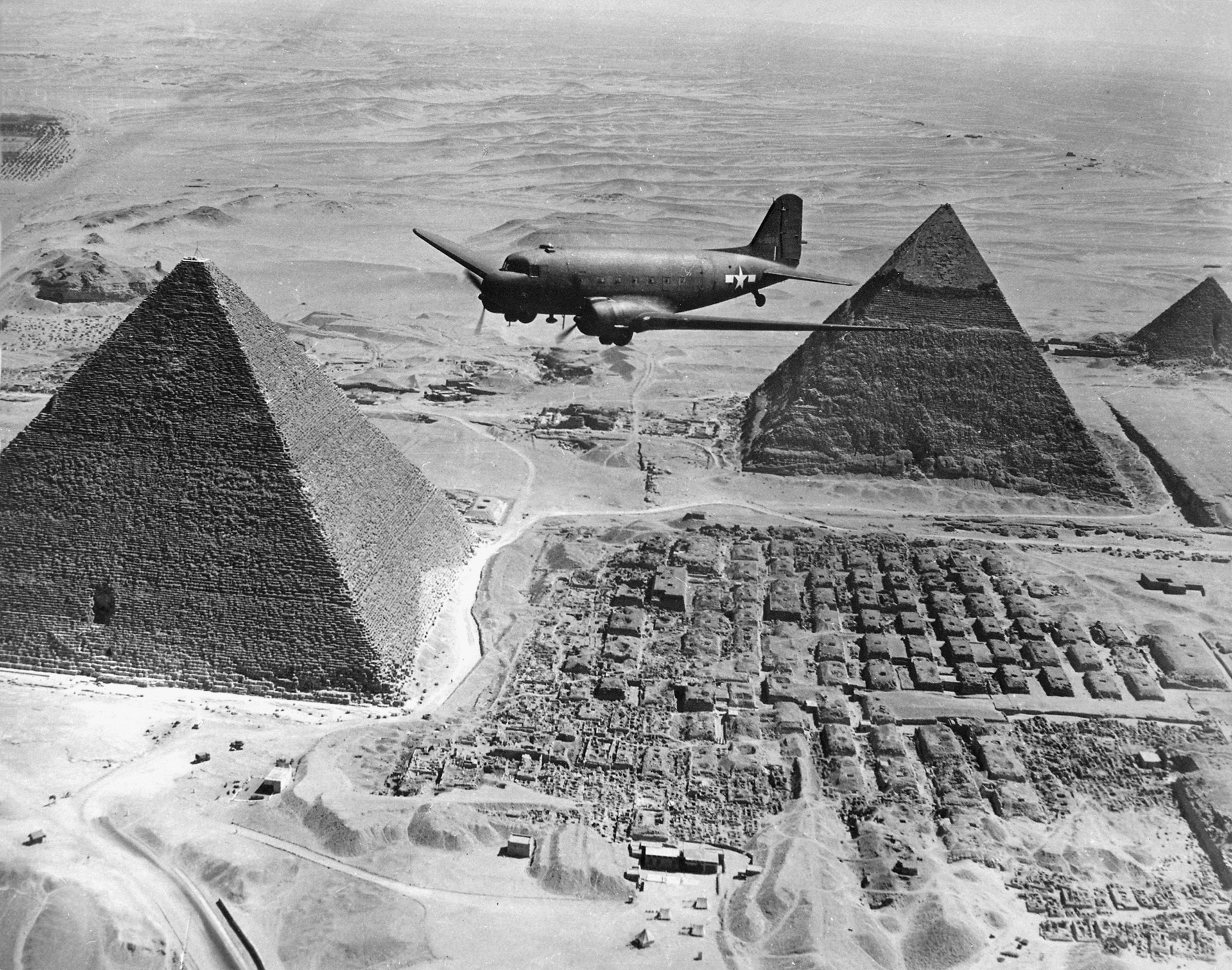
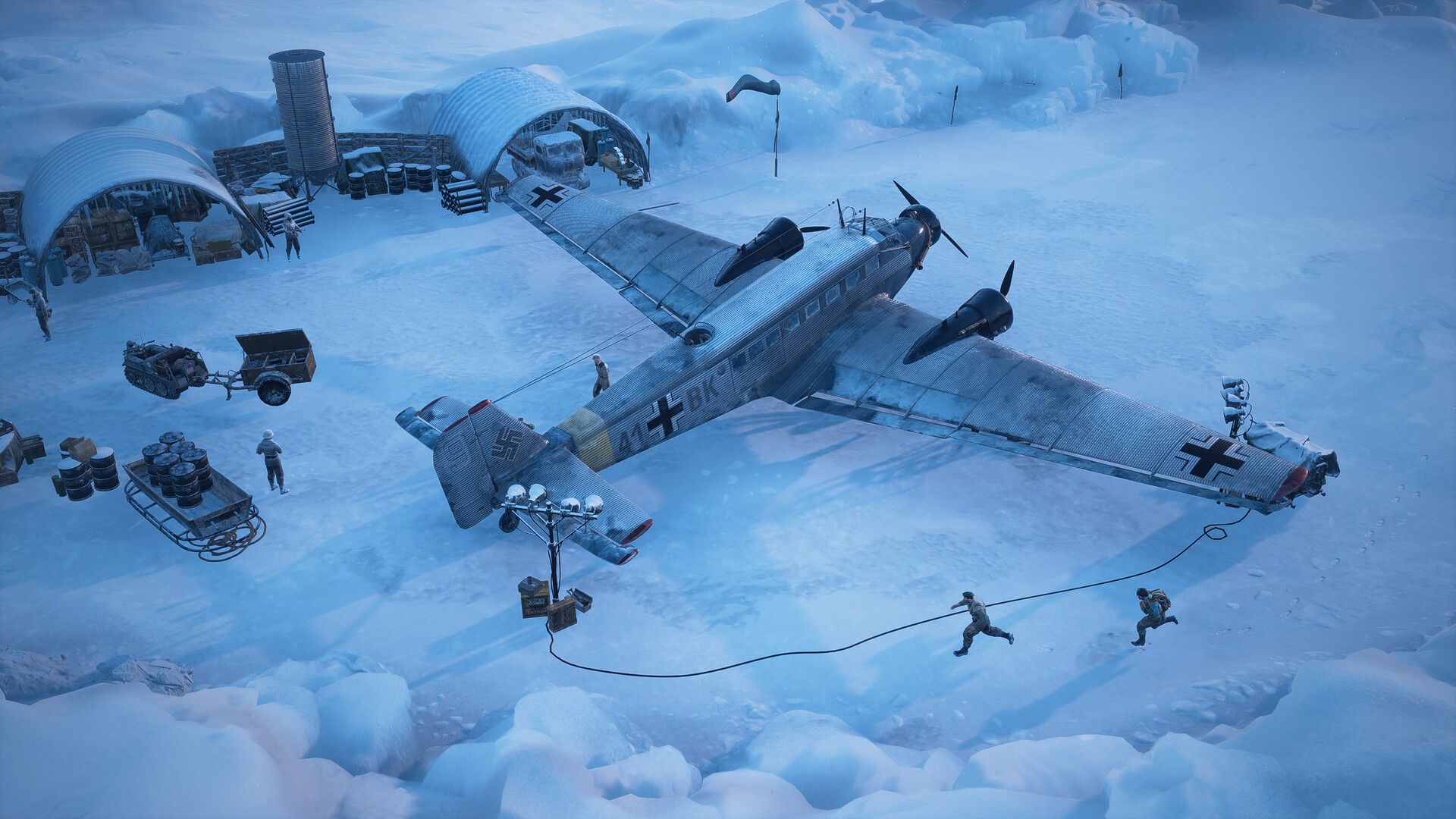
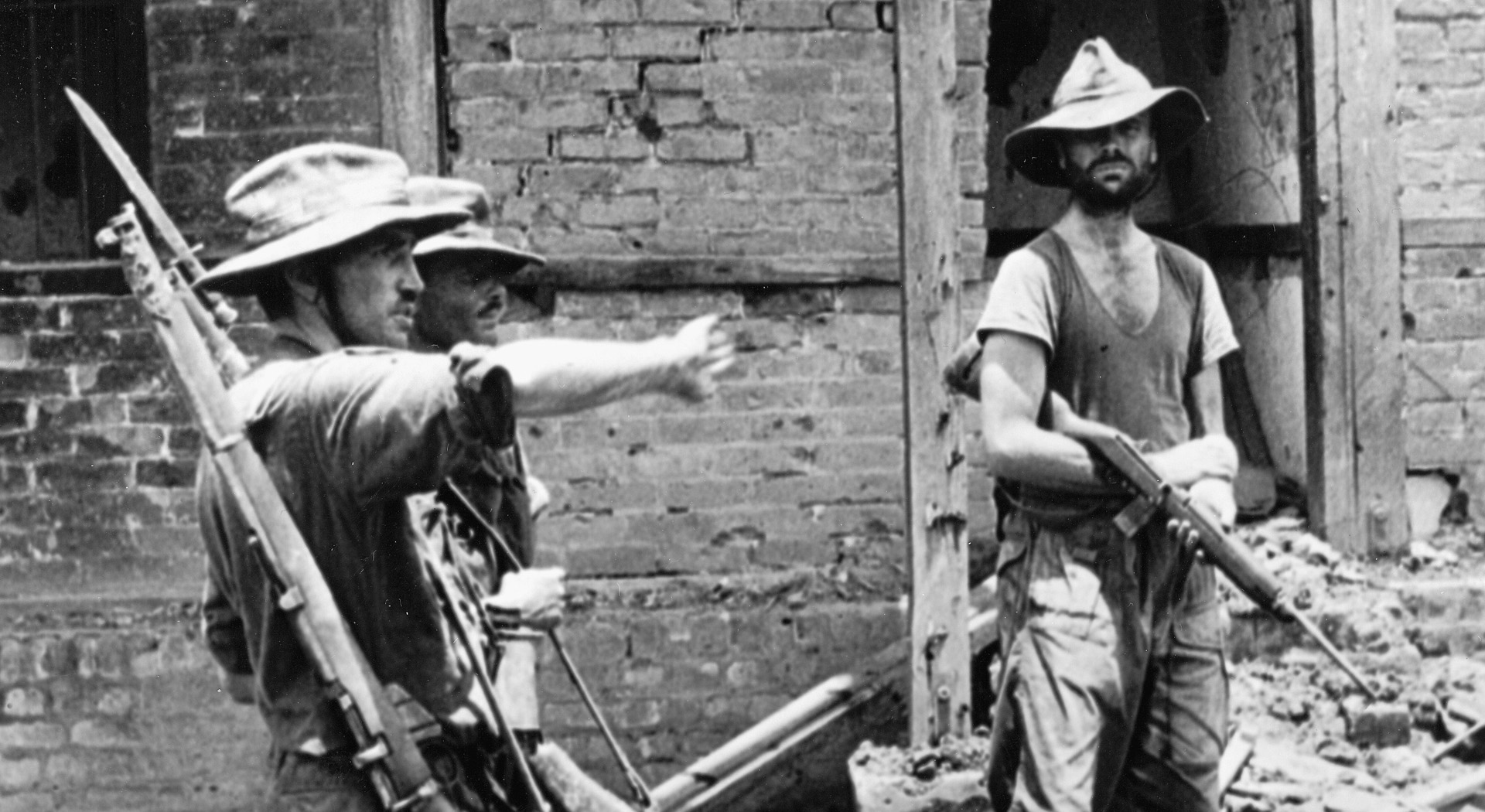
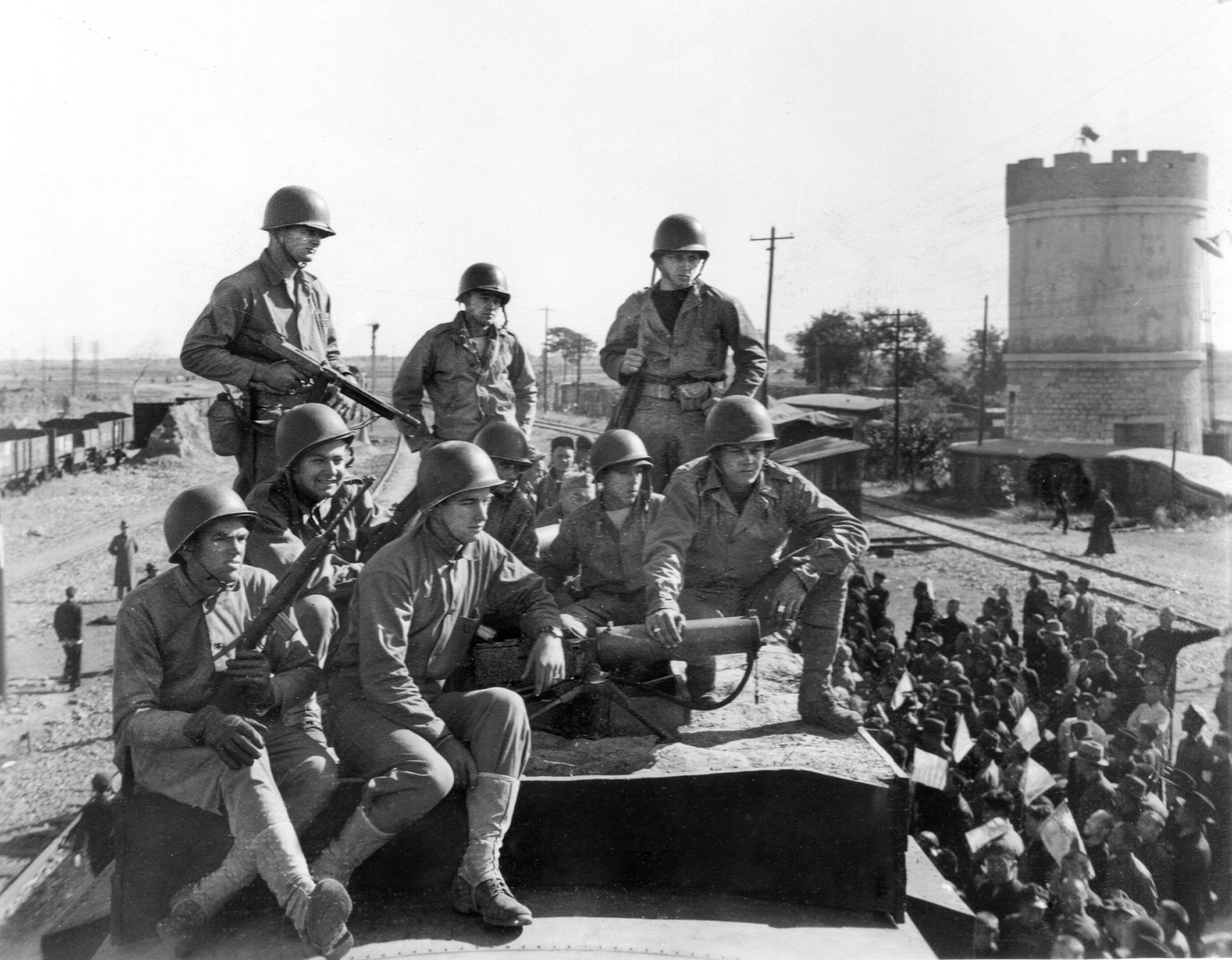
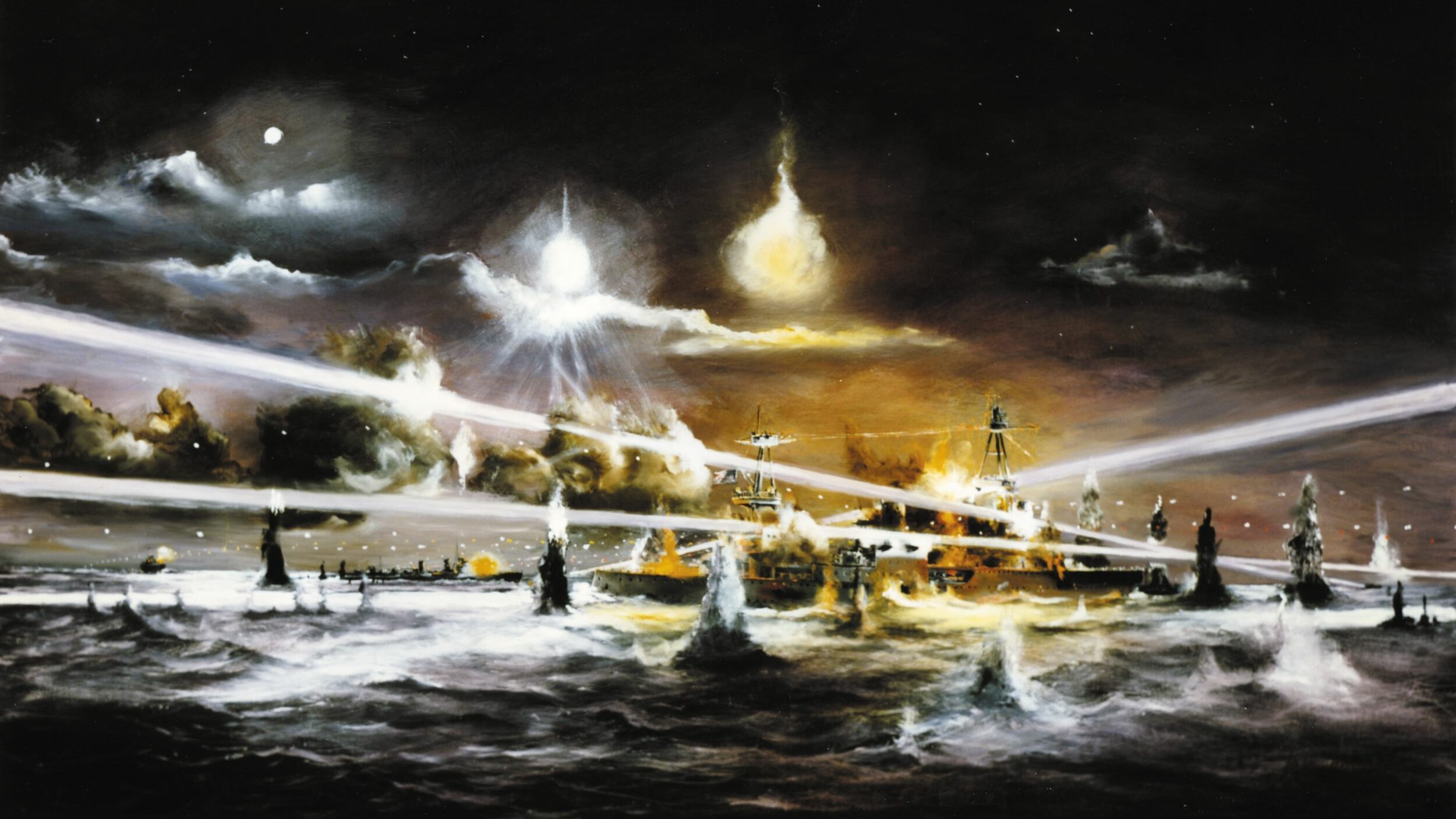
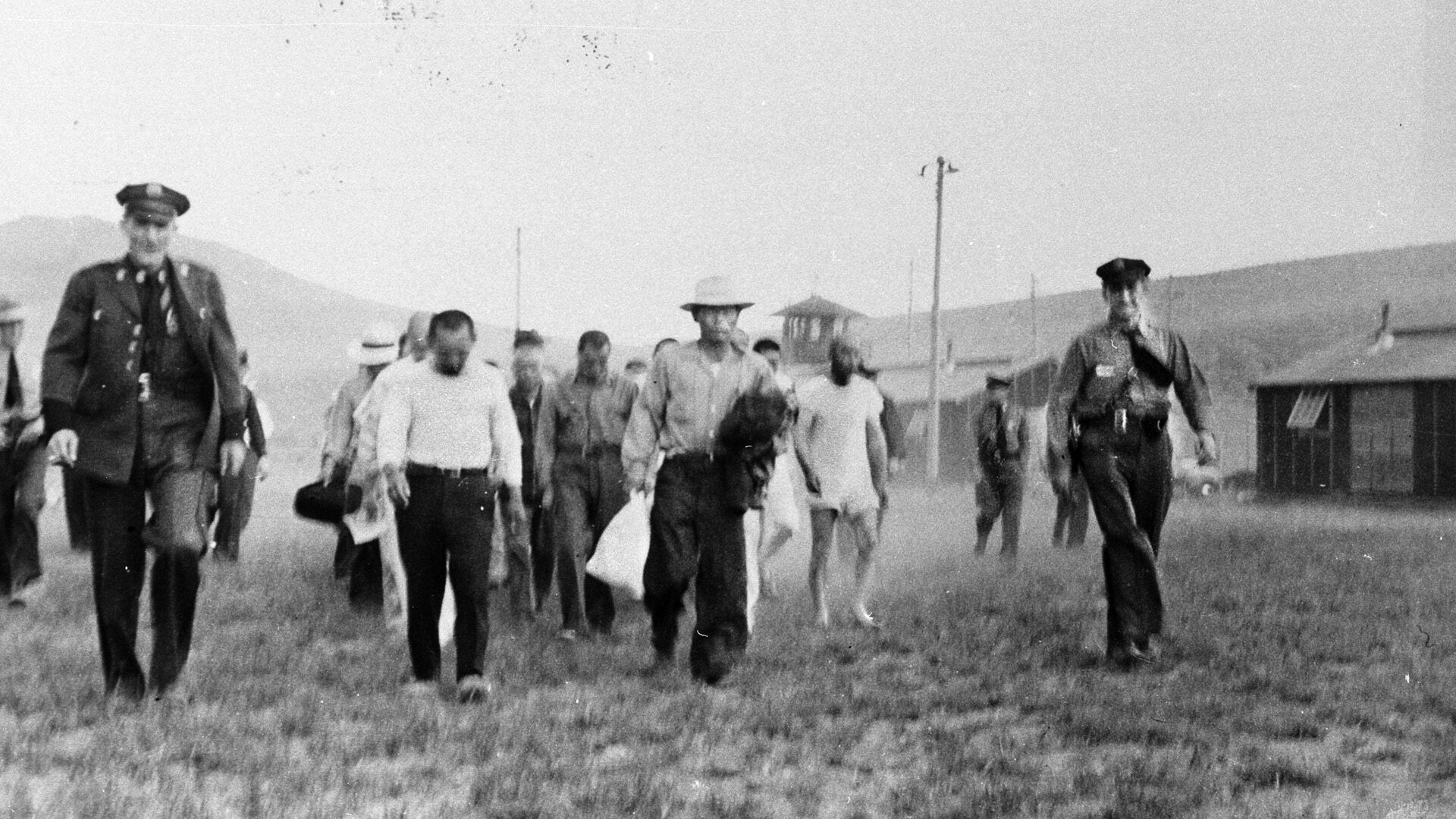
Enjoy articles
I Really Enjoyed the article on Robert W Creamer 104th Division..I recall the same things,as I was also a heavy weapons in the 84th Inf Division 334th Regt. in the Battle of the Bulge til the end of the War.
One of the best articles I’ve read on here. Thank you
Good to read articles in the words of Soldier’s.
A real good look at WW II infantry fighting, edited by my brother Tom, cobbled together from emails and conversations at the end of holiday dinners. I can still hear my father’s voice say how he never knew whether he had killed anyone, and his tone said he was glad for that.
Love to read articles on the 104th Inf. Timberwolves. My dad was in the 414th Inf., Anti-Tank Co. throughout the war.
Great article, makes you feel like you are there
This was real reporting…warts and all. Thank you…
These stories from our warriors are great! Please keep them coming, as I share with many of all ages!
Thank you!